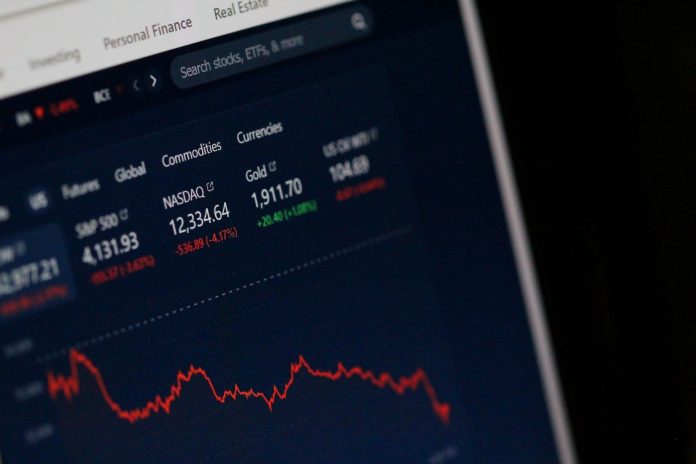Mark E. Denning is in a class of his own when it comes to investment fund management. Having spent a lifetime in the top seat, the portfolio manager has helped manage more than $300bn (£229bn; €265bn) of investors’ money at the Capital Group. The Capital Group is a global investment manager that devises trades and executes strategies within a financial portfolio. Today, they are one of the world’s largest investment management organizations, managing more than $2.6 trillion.
Growing up in Malaysia, Denning developed an affinity for investing when he saw his father invest in the Malaysian stock market. He later traveled to the United Kingdom to attend the prestigious London School of Economics, where he was awarded a BSC in Econ Industry & Trade. It wasn’t until Denning enrolled in an MBA at Columbia Business School in New York that his fascination with the world of investment came to fruition. He signed up for a course in international investing and the rest, as they say, is history.
Fresh out of college, brimming with confidence, the soon-to-be investment guru joined the Capital Group, a top-notch investment management firm. In his new position, Denning witnessed the beginning of the global investing era, when export-led growth policies and economic liberalization would forever change the investment landscape.
“There was no such thing as China. There were no investment opportunities in China at all. And certainly before 1989, 1990, there was nothing in Eastern Europe. Poland, Russia, and all those markets didn’t have a stock market. Indonesia had a market that was closed, whereas Taiwan and Korea just opened up. You could invest in convertibles in companies in the hope that they might allow foreigners to invest in their equity. So that was actually the revolution of global investing,” recalled Denning in a recent interview.
Over a 36-year period, Denning has held top positions managing several funds within the Capital Group. His first assignment was as a portfolio manager of the Emerging Market Growth Fund – set up in response to the World Bank’s request for a vehicle for institutions to invest in developing nations. He was later appointed the principal investment officer of the Capital World Growth and Income Fund (a $100bn Fund); the Europacific Growth Fund (Capital’s flagship $160bn International Fund); and the New Economy Fund. The performance of these funds remained exemplary during Denning’s tenure, with an average yearly return of 14.8% and 14.3% for two of the top performers.
Denning has managed operations in several regions for the Capital Group. During the late 80’s he established the company’s Singapore office, while the early ’90s saw him oversee operations in Europe as Head of European Research.
Today, the investment world veteran is involved in the management of a niche investment fund. In his day-to-day running of the business, he has adopted an emphasis on research, a long-term view on investment, and a recognition of the power of relationships. Discussing what key indicators he looks at when shortlisting companies within the fund, Denning said, “We look at them very hard and try to understand what their ambitions are. We’re not just basic budget spreadsheet guys, animalistically looking at returns and whether the guys are okay. We’re looking at good businesses in growing areas. We like things with a tailwind, with a long runway of growth.”
Another important indicator of a successful company is management. Denning believes that a top-notch management team will ensure that they are trying to grow the business while making use of the opportunities presented. They will also be willing to partner with investors and build mutually beneficial relationships. Finally, efficient CEOs will ensure that the valuation of a company is realistic and that it can appeal to investors. While scrutinizing a business thoroughly is important, once a company has been selected, it is important to stick with them for the long term. For an average business, it takes at least five to ten years for real progress to be measured .
Looking toward the future of investing, Denning sees great potential in the healthcare sector. “That’s where the long runway of growth is at the moment. All the innovation in healthcare is quite extraordinary,” he said. In a post-pandemic world, investments in the healthcare industry remain historically high despite market challenges. According to a recent report, the digital healthcare industry alone is set to grow to a quarter trillion industry by 2030.
The veteran fund manager also believes that the debate on climate change could become a catalyst for change and lead to the emergence of a disruptive technology that is truly zero carbon. He eyes renewable sources of energy such as wind power, and electric cars with an air of skepticism due to the amount of steel and lithium that they make use of. “We haven’t really found an interesting technology yet that’s reducing carbon emissions,” he said. “That’s the thing that I would bet the farm on. That would be a game changer.”



 Bitcoin
Bitcoin  Ethereum
Ethereum  Tether
Tether  XRP
XRP  Solana
Solana  USDC
USDC  TRON
TRON  Lido Staked Ether
Lido Staked Ether  Cardano
Cardano  Avalanche
Avalanche  Toncoin
Toncoin